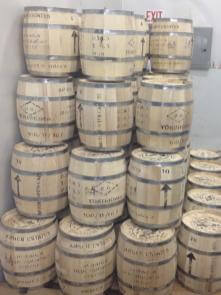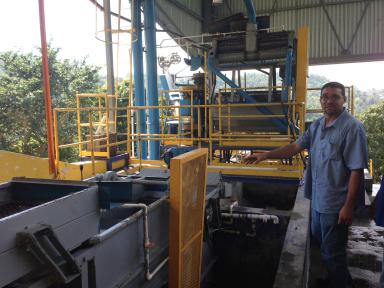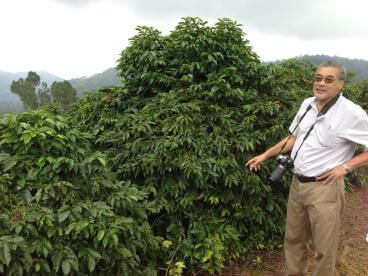Gold Cup Estate coffee is one of the finest coffees in the world from the Blue Mountains range in Jamaica, the 5th highest mountain in the Caribbean. Gold Cup Estate is the third largest estate in Jamaica after Mavis Bank and Wallenford respectively. They produce about 20,000 to 30,000 boxes of coffee a year, which is approximately 60,000kg to 90,000kg on 450 acres of land. Their production is of such high quality that each acre produces 100-150 boxes in comparison to all other Estates who produce on average 40 boxes per acre.
In 1728, Sir Nicholas Lawes, Governor of Jamaica introduced Arabica Typica coffee beans to the foothills of the eastern end of Jamaica. Abbey Green Farm was one of the premier coffee producing farms in the early to mid-1800s and the main supplier of berries for the Gold Cup Estate label. All coffee exported from Jamaica is shipped by the Coffee Industry Board of Jamaica and is open to rigorous testing by highly trained quality control experts. Coffee Industry Board The Coffee Industry Regulation Act specifies what coffee may use the Blue Mountain label. Additionally, it restricts the use of the Blue Mountain trademark to those authorized by the Coffee Industry Board. Broadly speaking, coffee harvested from the parishes of Saint Andrew, Saint Thomas, Portland and Saint Mary may be considered Blue Mountain coffee. As with most other varieties of coffee, there are several grades assigned to different lots, based on factors such as size, appearance, and defects allowed.
Coffee fact sheet

Jamaica Blue Mountain Gold Cup Estate
Farm CoffeeThis coffee has a slightly fruity acidity, intense roasted almonds and milk chocolate, very mellow and well-balanced.
| Variety: | Arabica |
| Processing: | washed |
| Grade: | 1 |
| Acidity: | Fruity |
| Cupping Score: | 86.75 |






